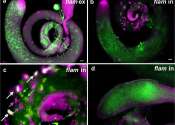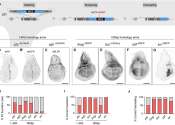Engineered microbes found to repel mosquitoes
Genetically-engineered human skin bacteria can make mice less attractive to mosquitoes for 11 days. Mosquitoes transmit a host of deadly diseases, including malaria, West Nile, dengue, yellow fever, and Zika. Female mosquitoes ...









